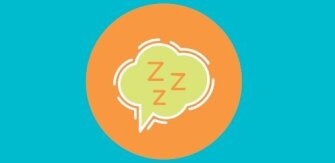
Getting consistent and adequate amounts of can have a significant impact on how well students perform on tests. That’s according to a new study by a group of researchers out of the Massachusetts Institute of Technology and Harvard.
However, only getting a good night’s sleep on the night before an exam doesn’t cut it. The researchers, who used monitoring devices to track the sleep of nearly 100 college students, found that’s not enough to boost test scores.
“The implications of these findings are that, at least in the context of an academic assessment, the role of sleep is crucial during the time the content itself is learned,” wrote the study’s authors.
It’s likely that sleep plays an important role in memory consolidation—the process in which what we have recently learned is transferred to long-term memory.
Published in the journal Science of Learning which is affiliated with the journal Nature, the study is one of only a few that have used objective measures of sleep—Fitbits—to track students’ sleep habits over an extended period of time, in this case an entire semester. While there is much research showing a connection between sleep and cognitive function in students, most of it has relied on students’ self-reporting.
Why Lunch, Exercise, Sleep, and Air Quality Matter at School
And while the study was done with college students, the results are applicable to younger students, according to the lead author on the paper.
What the researchers found is that good sleep—where students consistently got long enough, high-quality sleep—accounts for about 25 percent of the variance in how students performed on quizzes and exams over the course of the semester.
Inconsistent amounts of sleep from night-to-night also hurt student test scores. For example, not getting enough sleep during the week and then sleeping in during the weekends.
This was particularly true for males. The researchers found that a regular sleep schedule is more important to males’ academic performance than females.
Adolescents and young adults tend to get the most inconsistent sleep, other studies have found, and adolescents with greater inconsistency in their sleep schedules perform worse in school.
Related stories:
Image credit: Getty
